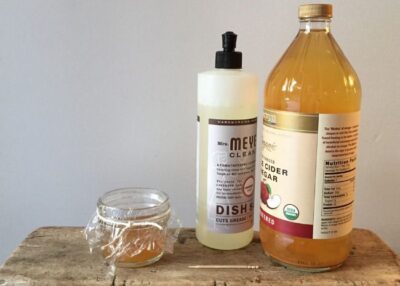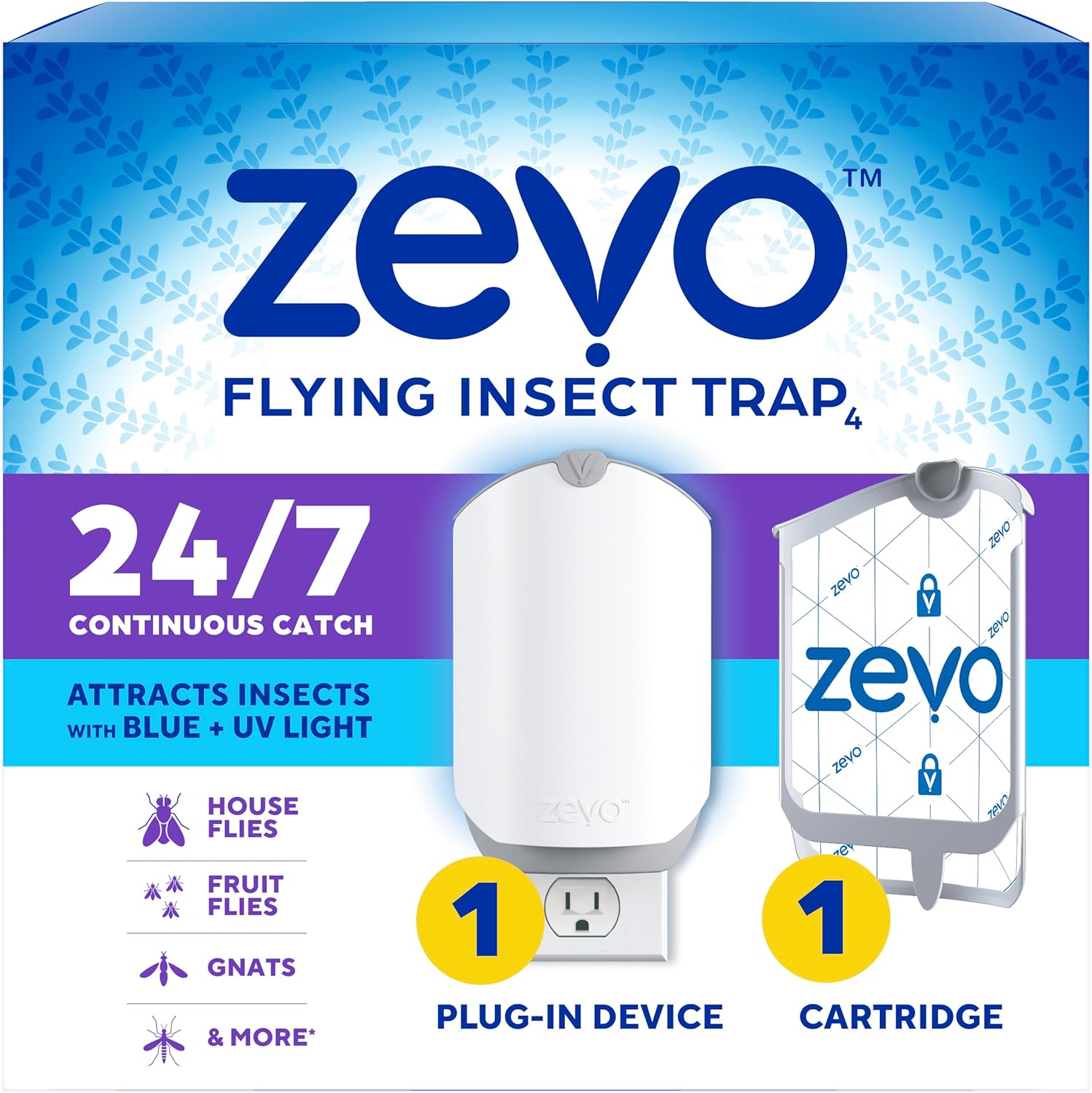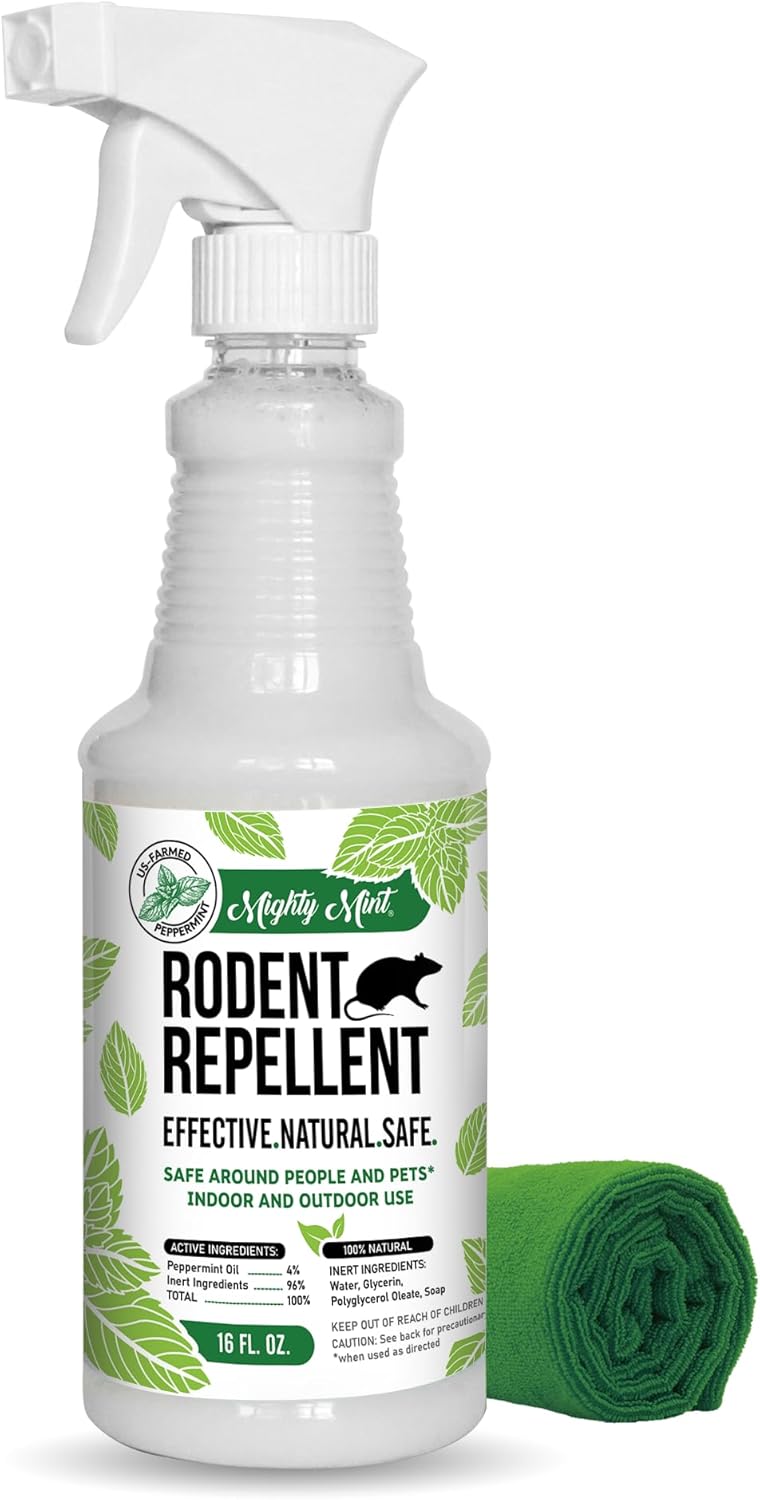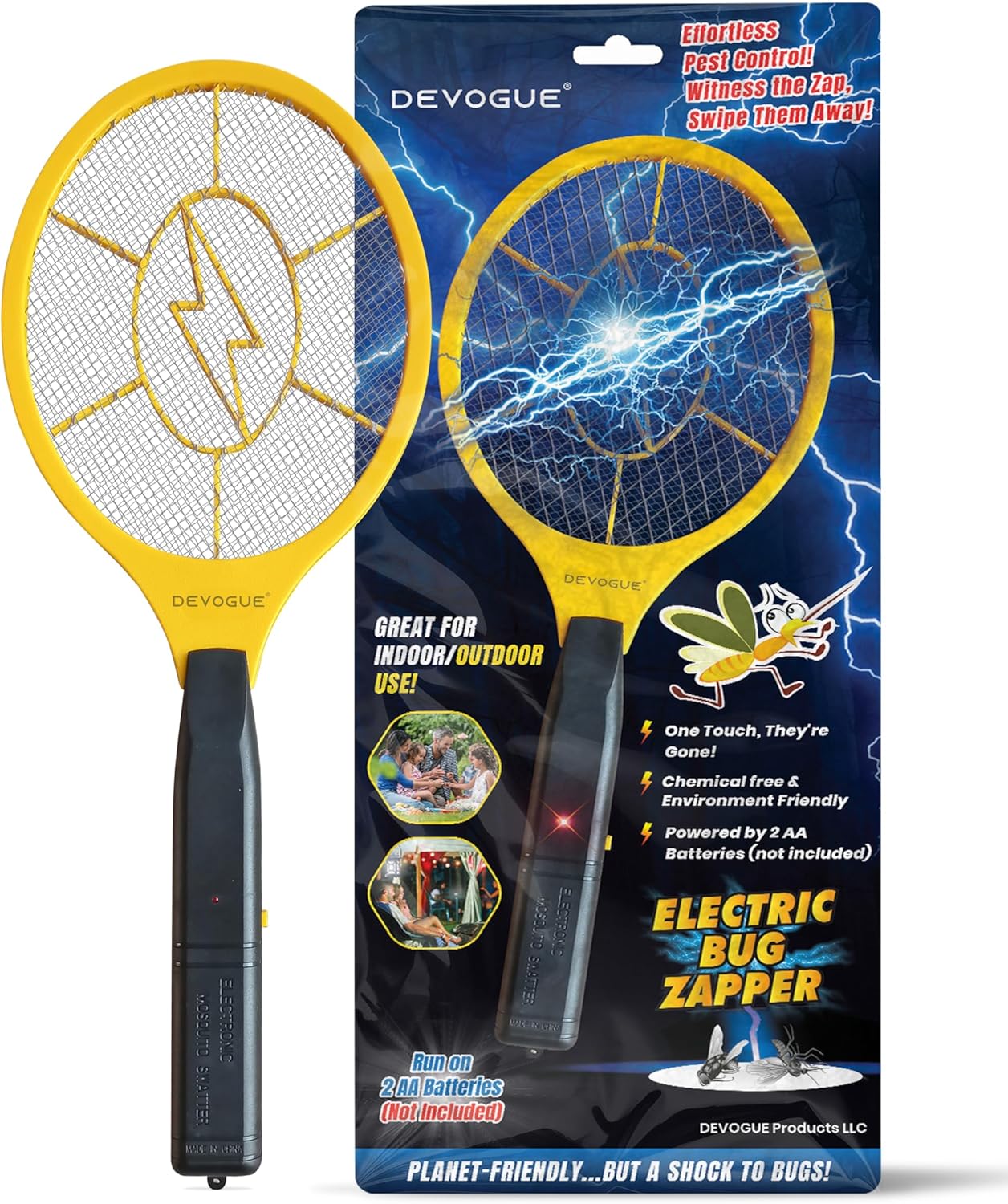Fly Control & Removal
Flies are persistent household pests that can spread diseases and contaminate food. Whether dealing with house flies, fruit flies, or drain flies, these insects can quickly multiply and become a significant nuisance. Effective control requires identifying the specific fly species, eliminating breeding sources, and implementing proper sanitation measures alongside targeted treatment methods.
Recommended Products
Zevo Flying Insect Trap
An innovative indoor pest control device that uses specialized blue and UV light technology to attract and capture flying insects. Features disposable adhesive cartridges for clean, touch-free removal and provides 24/7 continuous protection throughout your home.
- Continuous Protection
- Touch-Free Design
- Dual Light Technology
- Easy Maintenance
Mighty Mint Peppermint Oil Rodent Repellent
This powerful natural rodent deterrent uses high-grade peppermint oil from the Pacific Northwest to effectively repel mice and rats. The extra-concentrated formula comes in a convenient 16oz spray bottle, offering a humane and pleasant-smelling solution to rodent problems.
- Premium Natural Formula
- Safe & Family-Friendly
- Highly Concentrated
DEVOGUE Electric Fly Swatter
A portable, battery-operated bug zapper designed for both indoor and outdoor use. Features a triple-layer safety mesh and convenient one-button operation in a lightweight racket design that effectively eliminates flying insects on contact.
- Triple Safety Mesh
- Portable Design
- Simple Operation
- Instant Results
⚠️ Health & Safety Risks
- Food contamination
- Disease transmission
- Bacterial spread
- Food spoilage
- Hygiene concerns
🚨 When to Call a Professional
- Large-scale infestations
- Commercial facilities
- Restaurant/food service
- Recurring problems
- Hidden breeding sources
🏥 Emergency Response
- Food contamination: Discard affected items
- Drain problems: Contact plumber
- Severe infestation: Vacate area
- Health violations: Contact inspector
- Garbage issues: Schedule removal
🏡 DIY Removal Guides

How to Get Rid of Fruit Flies: 7 Proven Methods That Actually Work
Fruit flies can quickly transform your kitchen into a frustrating battleground. These tiny pests multiply rapidly, contaminate food surfaces, and…
Read More →🔬 Professional Solutions & Products

7 Best Fruit Fly Traps That Actually Work (DIY & Commercial Options 2026)
Fruit flies can quickly turn your kitchen into a breeding ground for these persistent pests. With their rapid reproduction cycle…
Read More →🔍 Signs of Infestation
- Visible adult flies
- Maggots in waste
- Black spots (droppings)
- Buzzing sounds
- Clustering near windows
🏠 Common Problem Areas
- Kitchen/food prep areas
- Garbage disposals
- Drains and pipes
- Trash containers
- Compost/organic waste
Frequently Asked Questions
What attracts flies to my house?
Food odors, garbage, pet waste, standing water, and decaying organic matter attract flies. Poor sanitation and open doors/windows provide easy access.
How do I get rid of fruit flies?
Remove overripe fruit, clean drains, use apple cider vinegar traps, and maintain strict kitchen cleanliness. Address all potential breeding sites.
Why do I have drain flies?
Drain flies breed in the organic matter buildup inside pipes. Regular drain cleaning and removing organic debris prevents infestations.
How quickly do flies multiply?
Female house flies can lay up to 500 eggs in their lifetime. In optimal conditions, eggs can develop into adults in just 7-10 days.
What's the best fly control method?
Integrated pest management combining sanitation, exclusion, traps, and targeted treatments works best. Focus on eliminating breeding sources.
Do light traps work for flies?
UV light traps can be effective as part of a broader control strategy, especially in commercial settings, but shouldn't be the only method used.
How do I prevent flies naturally?
Maintain cleanliness, seal garbage, use screens, clean drains regularly, and remove standing water. Natural repellents like basil and lavender may help.
Why are flies in my house in winter?
Flies seek warm shelter during cold months. They can survive indoors year-round if food and breeding conditions are available.
Are flies dangerous?
Yes, flies can spread diseases by transferring bacteria from contaminated surfaces to food and clean surfaces through their feet and regurgitation.
How long do fly problems last?
With proper treatment and prevention, fly problems can be resolved in 1-2 weeks. Ongoing prevention is key to avoid reinfestation.


